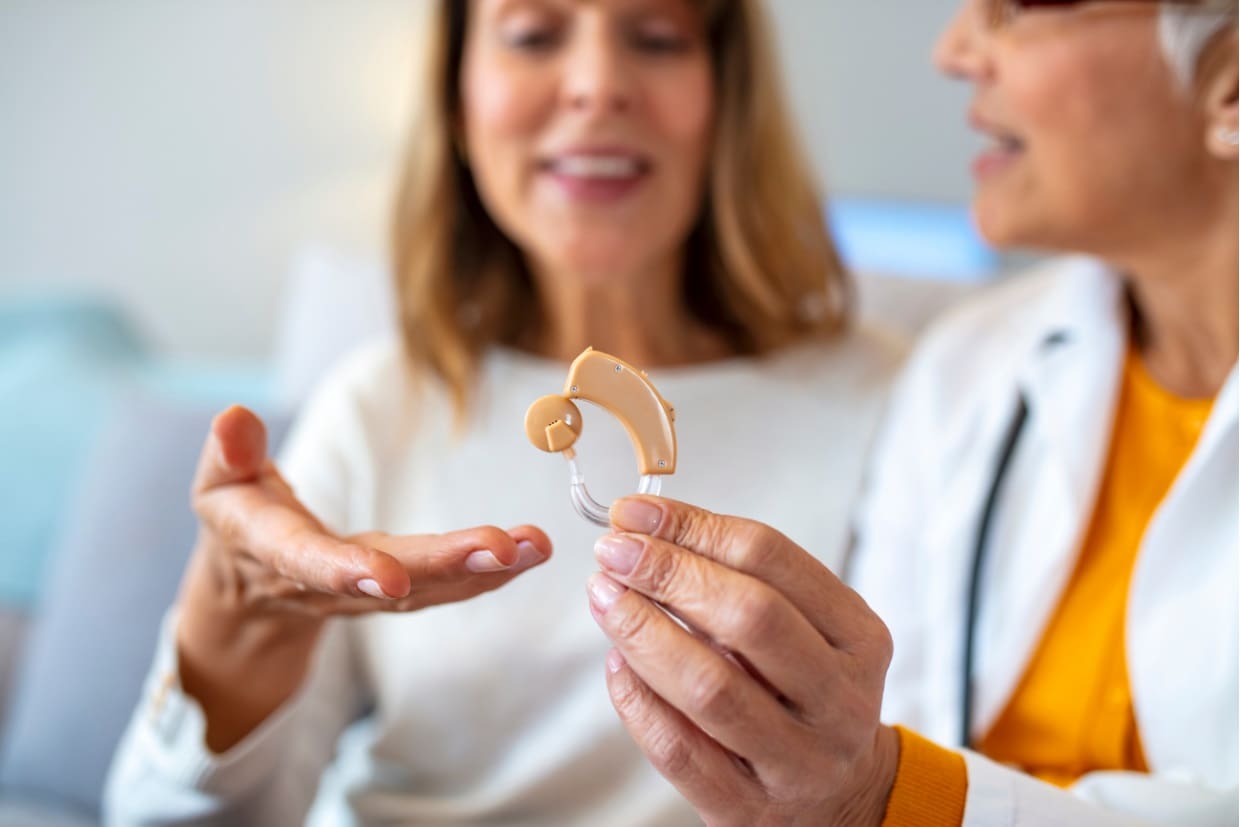Has a hearing test revealed you need hearing aids?
If you think Medicare will cover the cost of a pair of hearing aids, further tests, or bills associated with hearing exams, pay close attention: Original Medicare does not cover hearing aids.
That’s right. If you have Medicare Parts A and B, you will have to pay 100 percent of the cost associated with ordering hearing aids, including fittings and exams. However, if you are covered by a Medicare Advantage plan you may be in luck.
How to get help with hearing aids
By law, Medicare Advantage — also known as Medicare Part C — must offer the same coverage as Original Medicare. However, they have the flexibility to include extra benefits such as dental, vision, prescription drugs, and hearing aids.
According to Forbes, 88 percent of Medicare Advantage plans offer some sort of hearing aid coverage, which may include:
- Hearing exams
- Fittings and service
- Hearing aid batteries
- Repairs
- Earmolds
Of course, coverage can vary based on your insurance provider. Some plans, for instance, may require a copay or coinsurance while others may specify an amount that you can spend on the hearing aids.
What hearing loss services may be covered by Medicare Part B?
Diagnostic hearing exams
Medicare Part B can cover diagnostic hearing exams if your healthcare provider requests them to diagnose or evaluate certain symptoms you may be experiencing and to see if you need further medical treatment. In these cases, medicare.gov states that once you’ve met your Part B deductible, you will most likely pay:
- 20 percent of the approved charge, plus
- any copay for a hospital stay or outpatient service
It’s best to get an estimate for services upfront as the actual amount you pay can depend on a number of factors, such as:
- how much your doctor charges
- other insurance you may have
- the facility where you get treated
Cochlear implants
Medicare Part B covers prosthetics that can replace a body part or function. Cochlear implants, while not technically hearing aids, are indeed electronic devices that, through surgery, can restore or replicate sound in a severely damaged ear.
If you try hearing aids first and find they don’t help you hear any better, Medicare Part B can cover 80 percent of the cost of cochlear implants, if you qualify. However, for Medicare to pay for them, you’ll have to go to a Medicare-enrolled supplier. For more information, check out medicare.gov.
Need help?
The Medicare experts at The Baldwin Group can help you understand your coverage and your options. Contact us today.






